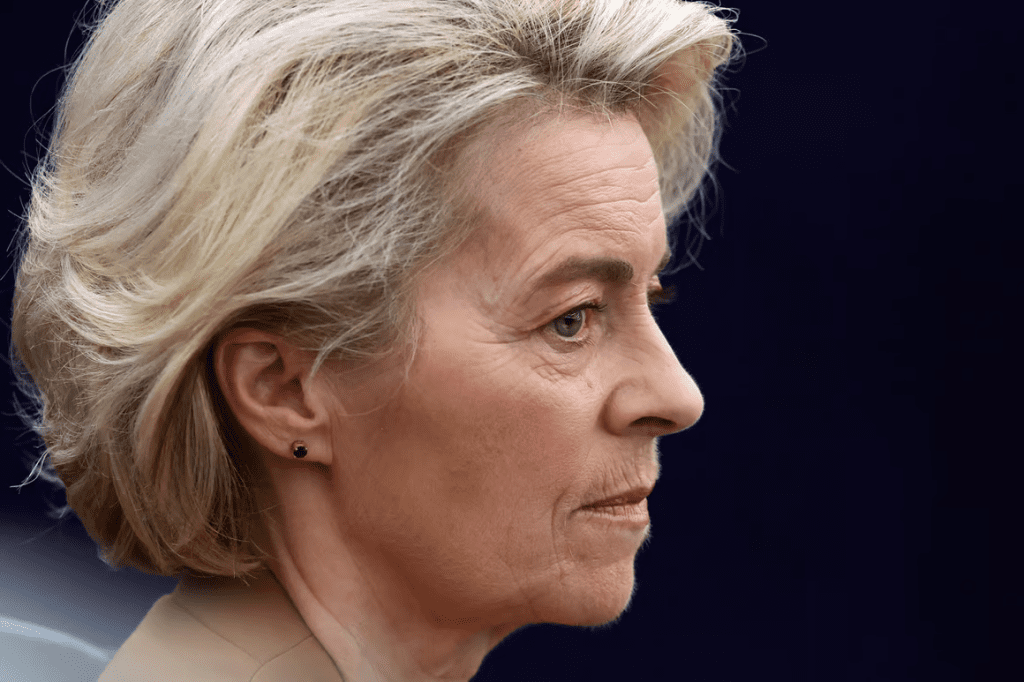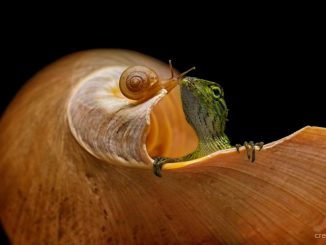The European Parliament already rejected the contentious text, which the Commission President described as a “worthy aim.”

“To move forward more dialogue and a different approach is needed,” Ursula von der Leyen said | Frederick Florin/AFP via Getty Images
STRASBOURG — European Commission President Ursula von der Leyen announced Tuesday that she will scrap a contentious upcoming bill that aimed to slash the use of chemical pesticides in agriculture.
The Commission first pitched the Sustainable Use of Pesticides (SUR) regulation in 2020 as part of its Green Deal, von der Leyen’s signature policy project, that involves ambitious and legally binding plans to make the Continent climate-neutral by 2050. The Commission then formally proposed the SUR bill in June 2022, setting a target to slash pesticide use and risks by 50 percent by 2030.
“The Commission proposed SUR, with the worthy aim to reduce the risks of chemical plant protection products,” von der Leyen told MEPs at the European Parliament in Strasbourg. “But the SUR proposal has become a symbol of polarization.”
The move represents another stunning volte-face for the Commission, which had put slashing the use of synthetic pesticides — amid growing evidence that they are damaging to the environment and human health — at the heart of its plan to shift away from an industrial model of agriculture.
But with mounting political opposition from farmers’ lobbies and center-right politicians, and now with farmers’ protests sweeping European countries — and even outside the Parliament itself last week — the EU executive pulled the plug.
Green fade
Belgian Prime Minister Alexander De Croo welcomed the move and top German center-right lawmaker Peter Liese wrote on X: “Bravo.”
It comes as part of a broader softening of the EU’s stance on greening the agri-food sector: The Commission dropped references to agriculture in a soon-to-be-unveiled 2040 climate target, and last week enacted a one-year pause on a requirement for farmers to leave farmland fallow for the sake of biodiversity.
Von der Leyen, a German conservative politician, noted that the Parliament rejected the proposal and that national governments gathered in the Council were no longer making progress on it either. “But of course, the topic stays,” she said, to a smattering of applause by lawmakers. “To move forward more dialogue and a different approach is needed,” she said.
“The Commission could make a new proposal with much more mature content and with the stakeholders together,” she added.
Its defeat in Parliament was largely due to the opposition of her own political family, the center-right European People’s Party (EPP), which has been on a mission to sink much of the Farm to Fork agenda, the agricultural part of the Green Deal, as the economic strife caused by Covid and the war in Ukraine pushed up energy costs and squeezed farmers’ incomes.
With four months to go until the EU election, the EPP is striving to present itself as a bastion of farmers’ interests to capture rural votes.
Greens and left-wing lawmakers, who spearheaded the negotiations on the SUR, ended up voting against the bill in plenary last November after it was watered down by the EPP in tandem with the far-right Identity and Democracy and European Conservatives and Reformists groups. The three right-wing groups pushed to weaken aspects of the law, including those aimed at protecting people in public areas from exposure to pesticides.
“What is not acceptable is politicizing this for electoral gain, using the suffering of the farmers for that purpose,” Iratxe García, the Spanish leader of the Socialists and Democrats faction said, addressing the EPP.
The EPP largely gutted a parallel Green Deal bill to restore swathes of Europe’s natural areas, though that legislation is still limping to the finish line.
In the Council, negotiations between national governments on the pesticide file have ground to a halt, even after the Spanish and Belgian EU presidencies proposed stripping the SUR of its most controversial elements and keeping only those that promote the uptake of safer alternatives to chemical pesticides.
Von der Leyen also said that a report on a consultation with farmers and environmental groups will be ready “by late summer” and will underpin the direction of the bloc’s future agricultural policy, which is currently based on disbursing giant subsidies under the Common Agricultural Policy.
Source: Politico


